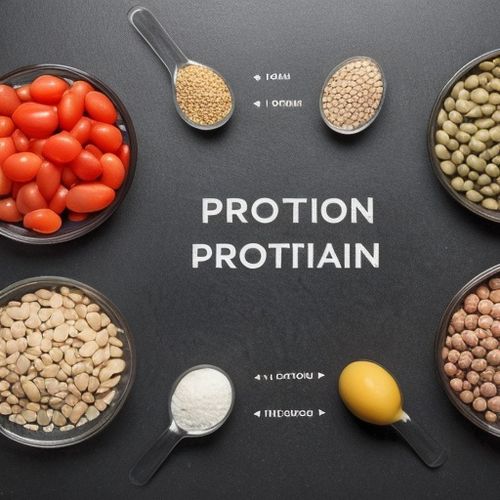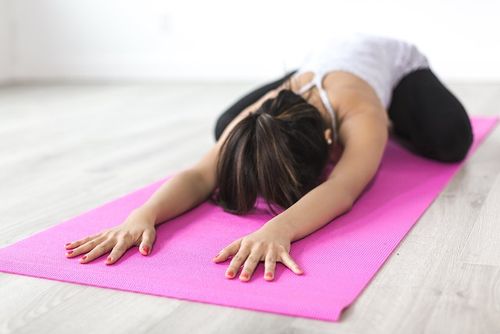In the modern world, the pursuit of health and well-being has become a top priority for many individuals. With the increasing awareness of the importance of maintaining a healthy lifestyle, more and more people are turning to exercise, proper nutrition, and mindfulness practices to enhance their overall quality of life. This article explores the interconnected nature of these practices and how they can collectively contribute to a healthier, happier, and more fulfilling life.
The Role of Exercise in Health and Wellness
Exercise is a cornerstone of a healthy lifestyle, offering numerous benefits for both physical and mental health. Regular physical activity helps maintain a healthy weight, strengthens the cardiovascular system, improves muscle tone and flexibility, and enhances overall physical fitness. However, the benefits of exercise extend far beyond the physical realm. Engaging in regular physical activity can also have a profound impact on mental and emotional well-being.
Physical Benefits of Exercise
1. Weight Management: One of the most significant benefits of exercise is its role in weight control. Physical activity helps burn calories, and when combined with a balanced diet, it can lead to weight loss or maintenance of a healthy weight. Regular exercise also helps prevent obesity, a condition linked to numerous chronic diseases such as diabetes, heart disease, and certain cancers.
2. Cardiovascular Health: Exercise is crucial for maintaining a healthy heart. Regular physical activity strengthens the heart muscle, improves circulation, and reduces the risk of cardiovascular diseases. Studies have shown that individuals who engage in regular exercise have a lower risk of developing hypertension, high cholesterol, and coronary artery disease.
3. Muscle and Bone Strength: Weight-bearing exercises, such as walking, running, and resistance training, help build and maintain muscle mass and bone density. This is particularly important as we age, as it helps prevent age-related muscle loss (sarcopenia) and osteoporosis. Strong muscles and bones also improve balance and reduce the risk of falls and fractures.
4. Improved Sleep Quality**: Physical activity can significantly improve sleep quality. Exercise helps regulate the body's circadian rhythms, making it easier to fall asleep and stay asleep. It also reduces symptoms of insomnia and other sleep disorders, leading to more restful and rejuvenating sleep.
Mental and Emotional Benefits of Exercise
1. Stress Relief: Exercise is a powerful stress reliever. Physical activity helps reduce the levels of stress hormones like cortisol and adrenaline, while increasing the production of endorphins. This combination leads to a natural reduction in stress and anxiety, leaving individuals feeling more relaxed and calm.
2. Improved Mood: Regular exercise has been shown to have a positive impact on mental health. It helps alleviate symptoms of depression and anxiety, and promotes a general sense of well-being. Exercise also boosts self-esteem and confidence, as individuals feel more in control of their bodies and health.
3. Enhanced Cognitive Function: Physical activity is not just beneficial for the body; it also supports brain health. Exercise increases blood flow to the brain, promoting the growth of new neurons and improving cognitive function. Studies have shown that regular exercise can enhance memory, concentration, and problem-solving skills, and may even reduce the risk of neurodegenerative diseases like Alzheimer's.
The Importance of Nutrition in Health and Wellness
Nutrition is another critical component of a healthy lifestyle. A balanced diet provides the body with the essential nutrients it needs to function optimally, supports weight management, and reduces the risk of chronic diseases. Proper nutrition also plays a vital role in mental and emotional well-being, as certain nutrients are essential for brain function and mood regulation.
Key Principles of a Balanced Diet
1. **Variety**: A balanced diet should include a wide variety of foods from different food groups. This ensures that the body receives all the essential nutrients it needs. Aim to include fruits, vegetables, whole grains, lean proteins, and healthy fats in your daily meals.
2. Moderation: Avoid consuming any single nutrient in excess. While some nutrients are essential, consuming them in large quantities can lead to health problems. Practice portion control and listen to your body's hunger and fullness cues.
3. Whole Foods: Focus on consuming whole, unprocessed foods. These foods are rich in nutrients and free from added sugars, unhealthy fats, and artificial additives. Examples of whole foods include fruits, vegetables, whole grains, lean meats, and nuts.
4. Hydration: Staying hydrated is crucial for maintaining bodily functions. Water helps regulate body temperature, aids digestion, and supports nutrient absorption. Aim to drink at least eight glasses of water per day, and limit your intake of sugary drinks and alcohol.
The Power of Mindfulness in Health and Wellness
Mindfulness is the practice of being fully present and engaged in the current moment, without judgment. It involves paying attention to your thoughts, feelings, and bodily sensations, and accepting them without trying to change them. Mindfulness has been shown to have numerous benefits for mental and emotional well-being, including reduced stress, improved mood, and enhanced cognitive function.
Practical Mindfulness Practices
1. Meditation: Meditation is one of the most well-known mindfulness practices. It involves sitting quietly and focusing on your breath, a mantra, or a specific object. Regular meditation can help reduce stress, improve concentration, and promote a sense of inner peace.
2. Mindful Eating: Pay attention to what you eat and how it makes you feel. Eat slowly, savor each bite, and listen to your body's hunger and fullness cues. Mindful eating can help prevent overeating and promote healthier food choices.
3. Deep Breathing Exercises: Deep breathing exercises can help reduce stress and promote relaxation. Focus on taking slow, deep breaths, inhaling through your nose and exhaling through your mouth. This simple practice can help calm the mind and reduce anxiety.
4. Yoga and Tai Chi: These practices combine physical movement with mindfulness techniques. They help improve flexibility, balance, and strength, while also promoting mental and emotional well-being.
Integrating Exercise, Nutrition, and Mindfulness into Daily Life
Achieving optimal health and well-being requires a holistic approach that integrates exercise, nutrition, and mindfulness. By combining these practices, individuals can experience a wide range of benefits that extend far beyond physical fitness. Here are some practical tips for incorporating these practices into daily life:
1. Set Realistic Goals: Start with small, achievable goals to build a sustainable exercise routine. For example, aim to exercise for 30 minutes a day, three times a week. Gradually increase the intensity and duration of your workouts as you become more comfortable.
2. Find Activities You Enjoy: Exercise should be enjoyable, not a chore. Experiment with different types of physical activity to find what you love. Whether it's dancing, hiking, swimming, or team sports, choose activities that make you look forward to moving your body.
3. Incorporate Movement into Daily Routines: Look for opportunities to be more active in your daily life. Take the stairs instead of the elevator, walk or bike to work, or take short breaks to stretch and move around. Small changes can add up to significant health benefits.
4. Create a Supportive Environment: Surround yourself with people who support and encourage your health goals. Join a fitness class, find a workout buddy, or participate in community wellness programs. A supportive environment can make it easier to stay motivated and committed.
5. Practice Mindful Eating: Pay attention to what you eat and how it makes you feel. Eat slowly, savor each bite, and listen to your body's hunger and fullness cues. Mindful eating can help prevent overeating and promote healthier food choices.
6. Prioritize Self-Care: Make time for activities that nourish your mind and soul. This could include reading, taking a relaxing bath, practicing yoga, or spending time in nature. Self-care is essential for reducing stress and maintaining overall well-being.
7. Engage in Mindfulness Practices: Incorporate mindfulness practices such as meditation, deep breathing exercises, or yoga into your daily routine. Even a few minutes a day can make a significant difference in your mental and emotional well-being.
The pursuit of health and well-being is a journey that requires a holistic approach. By integrating exercise, proper nutrition, and mindfulness practices into daily life, individuals can experience numerous benefits that extend far beyond physical fitness. Regular physical activity helps maintain a healthy weight, strengthens the cardiovascular system, and improves mental and emotional well-being. A balanced diet provides the body with essential nutrients, supports weight management, and reduces the risk of chronic diseases. Mindfulness practices such as meditation and mindful eating help reduce stress, improve mood, and enhance cognitive function.
Remember, the key to a sustainable and fulfilling lifestyle is balance. Start small, set realistic goals, and enjoy the journey. With dedication and consistency, exercise, nutrition, and mindfulness can become integral parts of your life, leading to a healthier, happier, and more vibrant future.

By Samuel Cooper/Apr 16, 2025

By James Moore/Apr 16, 2025

By Sophia Lewis/Apr 16, 2025

By Michael Brown/Apr 16, 2025

By Christopher Harris/Apr 16, 2025

By Natalie Campbell/Apr 16, 2025

By George Bailey/Apr 16, 2025

By Thomas Roberts/Apr 16, 2025

By Natalie Campbell/Apr 16, 2025

By John Smith/Apr 16, 2025

By Emma Thompson/Apr 15, 2025

By Lily Simpson/Apr 15, 2025

By Noah Bell/Apr 15, 2025

By Victoria Gonzalez/Apr 15, 2025

By Benjamin Evans/Apr 15, 2025

By Joshua Howard/Apr 15, 2025

By Daniel Scott/Apr 15, 2025

By Amanda Phillips/Apr 15, 2025

By James Moore/Apr 15, 2025

By Grace Cox/Apr 15, 2025